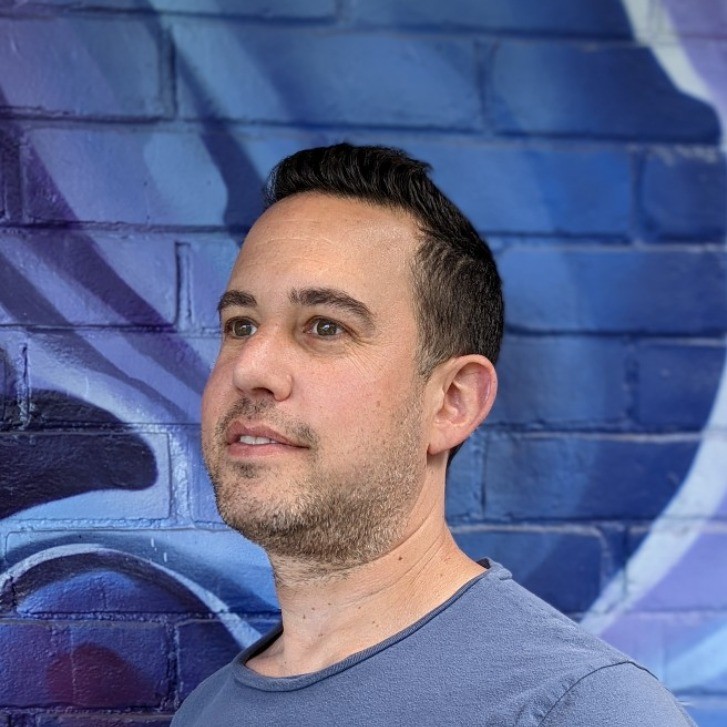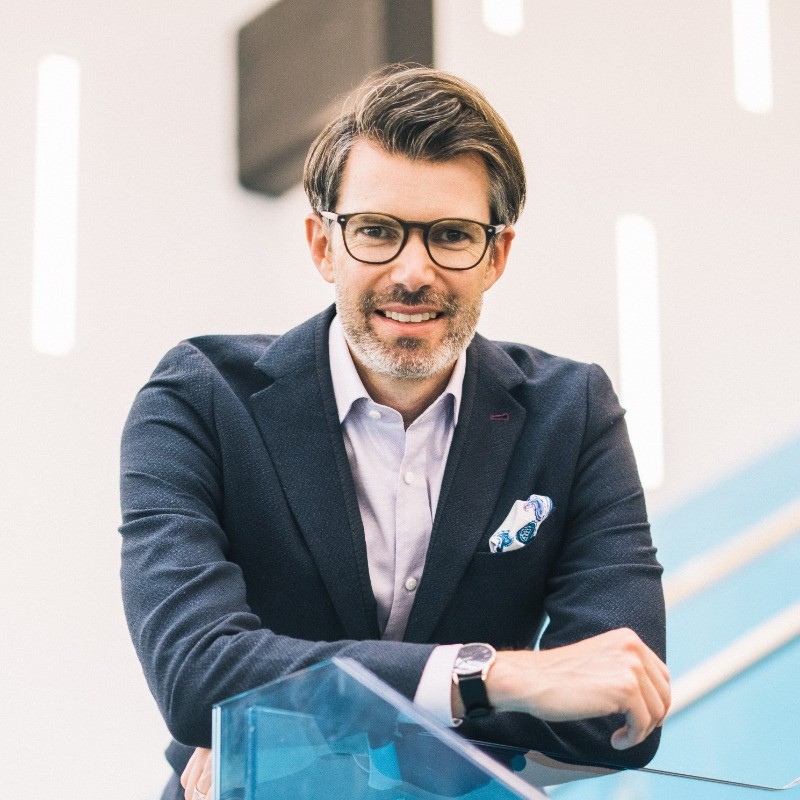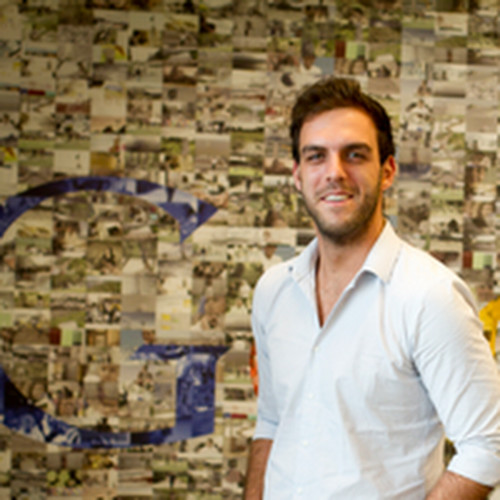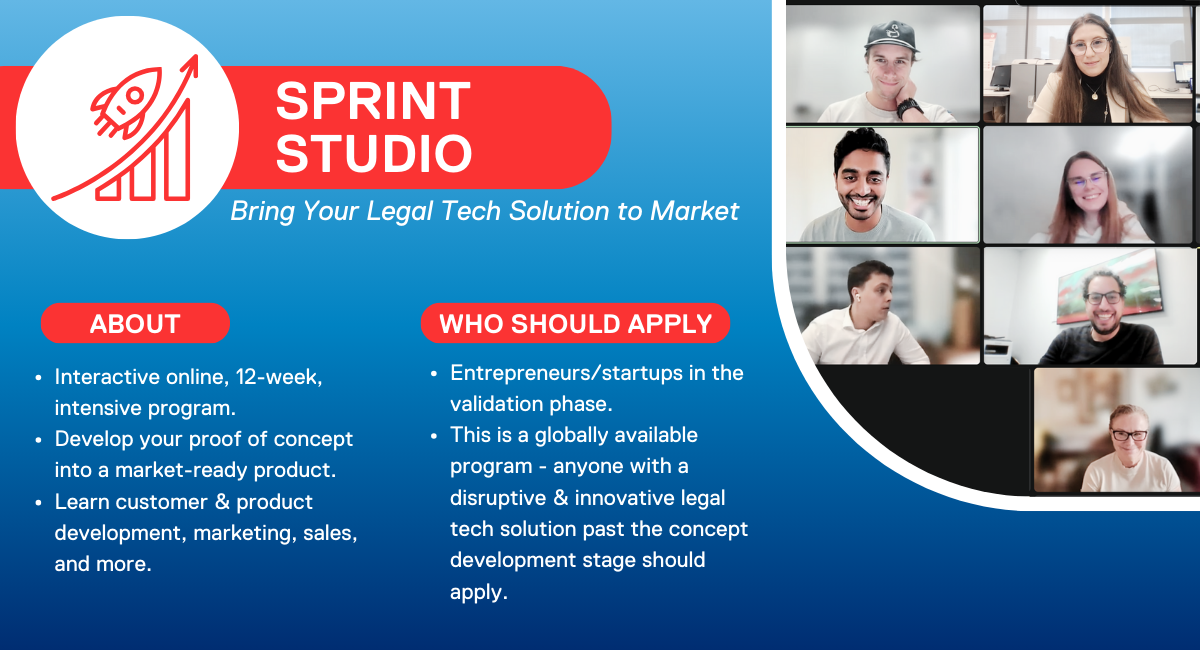Opportunity /ˌɒpəˈtjuːnɪti/ (noun) – an inherent part of any challenge if you switch from the oh-shoot to let’s-get-this-done mode.
Recap
Managing people in a start-up requires a blend of strategy, empathy, and adaptability. It also requires a great deal of resilience as this journey is a challenging rollercoaster with pitfalls that hide in balancing company needs with accommodating the team, ensuring adequate resources, providing constructive feedback, maintaining control over team direction, and prioritizing professionalism over personal relationships when hiring friends or becoming friends with your team.
While there’s no one-size-fits-all solution, investing in clear policies, hiring processes, budget planning, and effective communication channels for discussions and feedback can help you overcome challenges along the way. See “Challenges of managing people in a start-up” for some practical tips and examples that may come in handy.
Opportunities you have when managing a start-up team
I stand by the idea that any challenge presents an opportunity. It may be a chance to gain more knowledge, skills, perspectives, and constructive feedback. It may help you get acquainted with new people, approaches, tools, and frameworks. It can stimulate you to perfect your interpersonal communication strategies, delegation efficiency, emotional intelligence, and active listening skills. Challenges are not a bad thing to happen to a start-up. Challenges are extrinsic motivation, with company success as a reward.
Experiments and innovation as a policy
Building a company from scratch is always a risk. However, the impact you have on the company processes and work ethics is as big as the risk itself. There’s no better time to try a million things, experiment with tools and frameworks, innovate with approaches, and listen to your team’s I’d-like-tos and I’d-rathers to create a safe and supportive workspace that will reflect your company’s unique composition.
We at DreamProIT see experimentation and innovation as an opportunity for every team member to propose, test, and implement new tools, procedures, and approaches that will improve the work environment and overall efficiency. Every experiment, no matter the outcome, is a lesson well learned.
While experiments and novelty are good for team spirit and work optimization, it’s important to have people try stuff out in a safe environment to avoid disrupting the existing work processes. So I’d like to share some points on how you can nurture the innovation mindset while keeping things under control.
- Set the ground rules to structure the experiment. Every team member has the potential to contribute valuable insights and ideas. Compiling a short step-by-step guide on the experiment procedure will help you keep things under control when giving the green light to tryouts. It’s important, however, to focus on high-level instructions, allowing your team the flexibility to explore without rigid constraints. Our proposed steps are:
- Identify your pain points This includes defining issues, exploring causes, formulating assumptions on solutions, and anticipating the consequences of inaction.
- Design and run your experiment This covers developing and implementing solutions to address identified issues.
- Analyze and iterate This involves validating outcomes to determine whether success (or failure) is the result of the experimentation and not a one-time occurrence.
- Make evidence-based decisions
It’s crucial to draw conclusions based on the outcomes, not on the initial assumptions. Here are a few questions to help out:
- Did you manage to address an issue?
- Was the issue solved by the things you tried or implemented?
- Will you be able to avoid having the issue in the future due to the innovation you introduced?
- May your colleagues experience the same issue?
- Will your solution help them fix the issue?
- Set criteria to measure success. The success and impact of an experiment or innovation are measured primarily by its ability to improve work processes, productivity, and overall work environment. So, they are unique and depend on your company processes. If a change simplifies or enhances work and doesn’t cause bottlenecks or potential problems for other team members, it can be considered successful.
- Manage risks. Experimentation should not disrupt or hinder the work of other team members, so opt for sandbox experiments that allow for controlled proof of concept and assessment of potential impacts.
- Provide resources and support. Empower experimenting and innovating by providing the necessary resources, such as time, tools, and technology. For instance, grant your team the flexibility to dedicate up to 10% of their weekly work hours towards conducting small-scale, localized experiments and refining work routines. Encourage the exploration of various tools by leveraging free trial offers, or allow your team to use paid monthly subscriptions for a certain number of tools or platforms for 1 month. When opting for paid subscriptions, set a maximum subscription price to make sure your company can afford the costs.
Networking
There’s no fail-safe scenario for starting a business. However, you still do your best to avoid the most common mistakes, such as not having a clear value proposition and business model, neglecting marketing and sales, failing to hire the right people, and not adapting to change, to name a few.
In search of professional guidance and needed expertise, you meet lots of new people through online and in-person conferencing, joining communities, attending events, advocating for your services or products, and studying and connecting with people through webinars, seminars, programs, workshops, and online or in-person courses. In short, networking is like hitting a mother lode in the start-up world, and you should never underestimate the power of your connections.
This blog post is a great opportunity for me to give a shoutout to some people I met in 2023. I strongly recommend following them on social media, as they share lots of helpful information and resources on entrepreneurship, start-up development, securing funds, project and product management, sales, and marketing, as well as their insights and achievements from their entrepreneurial journeys.
 Jonah Midanik – a serial entrepreneur with over 20+ years of experience building startups across Canada and the US and guiding founders. Jonah specializes in fundraising, narrative building, GTM strategy, and MVP development.
Jonah Midanik – a serial entrepreneur with over 20+ years of experience building startups across Canada and the US and guiding founders. Jonah specializes in fundraising, narrative building, GTM strategy, and MVP development.
 Kajanth Nithiyananthan – a product leader with 12+ years of experience launching and scaling products. Kajanth specializes in guiding founders to build the right strategy and prioritize effectively to get their products out to market quickly and efficiently.
Kajanth Nithiyananthan – a product leader with 12+ years of experience launching and scaling products. Kajanth specializes in guiding founders to build the right strategy and prioritize effectively to get their products out to market quickly and efficiently.
 Raquel de Castro Boechat – a business strategist and speaker with 20+ years of experience in business leadership, strategic communication, and startups. Raquel possesses a unique blend of expertise in developing business strategies and positioning cutting-edge technologies for market introduction.
Raquel de Castro Boechat – a business strategist and speaker with 20+ years of experience in business leadership, strategic communication, and startups. Raquel possesses a unique blend of expertise in developing business strategies and positioning cutting-edge technologies for market introduction.
 Russ Armstrong – a GTM leader, coach, mentor, and storyteller. Russ’s expertise is building GTM playbooks for growing teams in the B2B SaaS space across sales, marketing, CS, finance, and operations.
Russ Armstrong – a GTM leader, coach, mentor, and storyteller. Russ’s expertise is building GTM playbooks for growing teams in the B2B SaaS space across sales, marketing, CS, finance, and operations.
 Chantel Elliott – a marketing leader, consultant, entrepreneur, and certified Co-Active Leadership Coach with 25+ years of industry expertise. Chantel brings a wealth of knowledge in brand positioning, product launches, and digital marketing strategy.
Chantel Elliott – a marketing leader, consultant, entrepreneur, and certified Co-Active Leadership Coach with 25+ years of industry expertise. Chantel brings a wealth of knowledge in brand positioning, product launches, and digital marketing strategy.
 Craig Elias – an entrepreneur, educator, and sales expert recognized as Canada’s #1 B2B Sales Expert by LinkedIn in 2018 and 2019. Craig’s expertise includes entrepreneurship, sales, and marketing, particularly in lead generation.
Craig Elias – an entrepreneur, educator, and sales expert recognized as Canada’s #1 B2B Sales Expert by LinkedIn in 2018 and 2019. Craig’s expertise includes entrepreneurship, sales, and marketing, particularly in lead generation.
 Jenn Lofgren CPHR, MCC, ICD.D – a Master Certified Coach with 15+ years of experience in coaching, mentoring, gap analysis, and strategic development. Jenn specializes in leadership & executive coaching and is dedicated to partnering with high achievers to overcome challenges and achieve their full potential.
Jenn Lofgren CPHR, MCC, ICD.D – a Master Certified Coach with 15+ years of experience in coaching, mentoring, gap analysis, and strategic development. Jenn specializes in leadership & executive coaching and is dedicated to partnering with high achievers to overcome challenges and achieve their full potential.
 Devon Smiley – a negotiation and commercial consultant for founders and their teams. Devon specializes in providing actionable guidance to startups and scaleups across various industries, ensuring robust commercial outcomes while prioritizing relationships.
Devon Smiley – a negotiation and commercial consultant for founders and their teams. Devon specializes in providing actionable guidance to startups and scaleups across various industries, ensuring robust commercial outcomes while prioritizing relationships.
 Dr. Simon Raby, Ph.D. – a growth strategist, advisor, professor, and published author. Simon’s expertise is unlocking leadership, team, and organizational potential for sustained growth.
Dr. Simon Raby, Ph.D. – a growth strategist, advisor, professor, and published author. Simon’s expertise is unlocking leadership, team, and organizational potential for sustained growth.
 Luís Kimaid – an executive with a diverse background in technology, governance, and strategic management, currently serving as the Executive Director at Bússola Tech. Luís expertise lies in building a global community for legislative modernization.
Luís Kimaid – an executive with a diverse background in technology, governance, and strategic management, currently serving as the Executive Director at Bússola Tech. Luís expertise lies in building a global community for legislative modernization.
 Melanie Campbell – a leader with 25+ years of diverse experience in sales, leadership, and entrepreneurship. She currently serves as the Women in Enterprise Manager at TD Bank and leads a team focused on supporting and financing female entrepreneurs across Western Canada.
Melanie Campbell – a leader with 25+ years of diverse experience in sales, leadership, and entrepreneurship. She currently serves as the Women in Enterprise Manager at TD Bank and leads a team focused on supporting and financing female entrepreneurs across Western Canada.
 Ariel Nacson – the Chief Customer Officer and co-founder, spearheading the customer experience strategy for legal tech. Drawing from a background in psychotherapy and clinical psychology research, Ariel possesses a deep understanding of customer needs, motivations, and behaviors.
Ariel Nacson – the Chief Customer Officer and co-founder, spearheading the customer experience strategy for legal tech. Drawing from a background in psychotherapy and clinical psychology research, Ariel possesses a deep understanding of customer needs, motivations, and behaviors.
 Mona Datt – a digital transformation leader with 18+ years in legal & insurance Ops. Mona focuses on melding legal tech, transcription solutions, and human expertise to advance operational efficiencies and foster actionable intelligence in the B2B sector, particularly within legal, insurance, and associated industries.
Mona Datt – a digital transformation leader with 18+ years in legal & insurance Ops. Mona focuses on melding legal tech, transcription solutions, and human expertise to advance operational efficiencies and foster actionable intelligence in the B2B sector, particularly within legal, insurance, and associated industries.

Joel Fox – a legal tech founder with a proven track record spanning entrepreneurship, corporate leadership, and strategic partnerships.

Daniel Steinberg – a co-founder and CEO, leveraging his background in professional services, marketing technology, and legal technology.
Start-up support programs
Start-up accelerators and other support programs present an excellent networking opportunity. I got to know the majority of people I connected to in 2023 through an incubator or events presented by the incubator team. However, besides networking, the impact of accelerators and incubators on your entrepreneurial mindset and skills is so tangible that it’s only fair to single them out as a separate point.
There are a plethora of start-up programs, ranging from specialized local projects to big international programs, that provide important resources for early-stage companies, including access to seed funding, mentoring, training, networks, and potential investors. My strong personal and professional recommendation is to apply to those you like and don’t think of giving up if you get rejected at the beginning. Use the rejection as a learning opportunity and apply again. Here are some points to keep in mind:
- Acceptance into top programs signals credibility to investors, showcasing serious long-term potential. Participating founders gain access to experienced mentorship from successful entrepreneurs and executives, who provide strategic guidance and steer them away from potential pitfalls.
- These programs provide valuable connections to a vast network of investors, facilitating warm introductions and opportunities for funding.
- Startups learn essential pitch and fundraising skills, mastering the art of crafting compelling pitches and negotiating favorable deal terms.
I think this blog post is gradually turning into a list of people I appreciate. However, if you find at least one person who resonates with you, at least one helpful LinkedIn post, then it’s all worth it.
 I’d like to give kudos to the Legal Innovation Zone team, particularly Hersh Perlis and Hiba Chaarani. We got acquainted through their amazing Sprint Studio program. Our team had a legal tech product idea, we needed input on it, so we applied to Sprint Studio’s fall 2023 cohort and got accepted.
I’d like to give kudos to the Legal Innovation Zone team, particularly Hersh Perlis and Hiba Chaarani. We got acquainted through their amazing Sprint Studio program. Our team had a legal tech product idea, we needed input on it, so we applied to Sprint Studio’s fall 2023 cohort and got accepted.
I spent 12 weeks attending extremely informative and straight-to-the-point online sessions spanning from customer development through product management to funding and got acquainted with a bunch of aspiring founders. Shoutout to Michael Stych and the Contend Legal team, Angel Niño Torres, Nick Raffey, Josh Lokko, Rebecca Field Jager, Olivier Descriaux, Mustafa Jilani, Mohamed Essafa, Tahir Ramzan, and other Sprint Studio Cohort 4 participants!

Bottom line
Having a strong and cohesive team and providing them with a culture of innovation and creativity is paramount for any company. Usually, those who join start-up teams are full of ideas and enthusiasm to implement them, so put this striving to good use. Embracing experimentation and innovation as a policy allows every team member to propose, test, and implement new tools and approaches to improve efficiency and create a supportive work environment.
A start-up, however, is not only about building a team and creating a culture. It’s also about nurturing your own environment and looking for ways to expand your expertise. Whether through online platforms, events, or programs, networking provides opportunities to learn, collaborate, and receive mentorship from experienced professionals. By actively engaging in networking opportunities, you can avoid common start-up pitfalls and tap into a wealth of knowledge from seasoned professionals.
